This Week At Angama #19
15 June 2018 | This Week at Angama | Adam Bannister
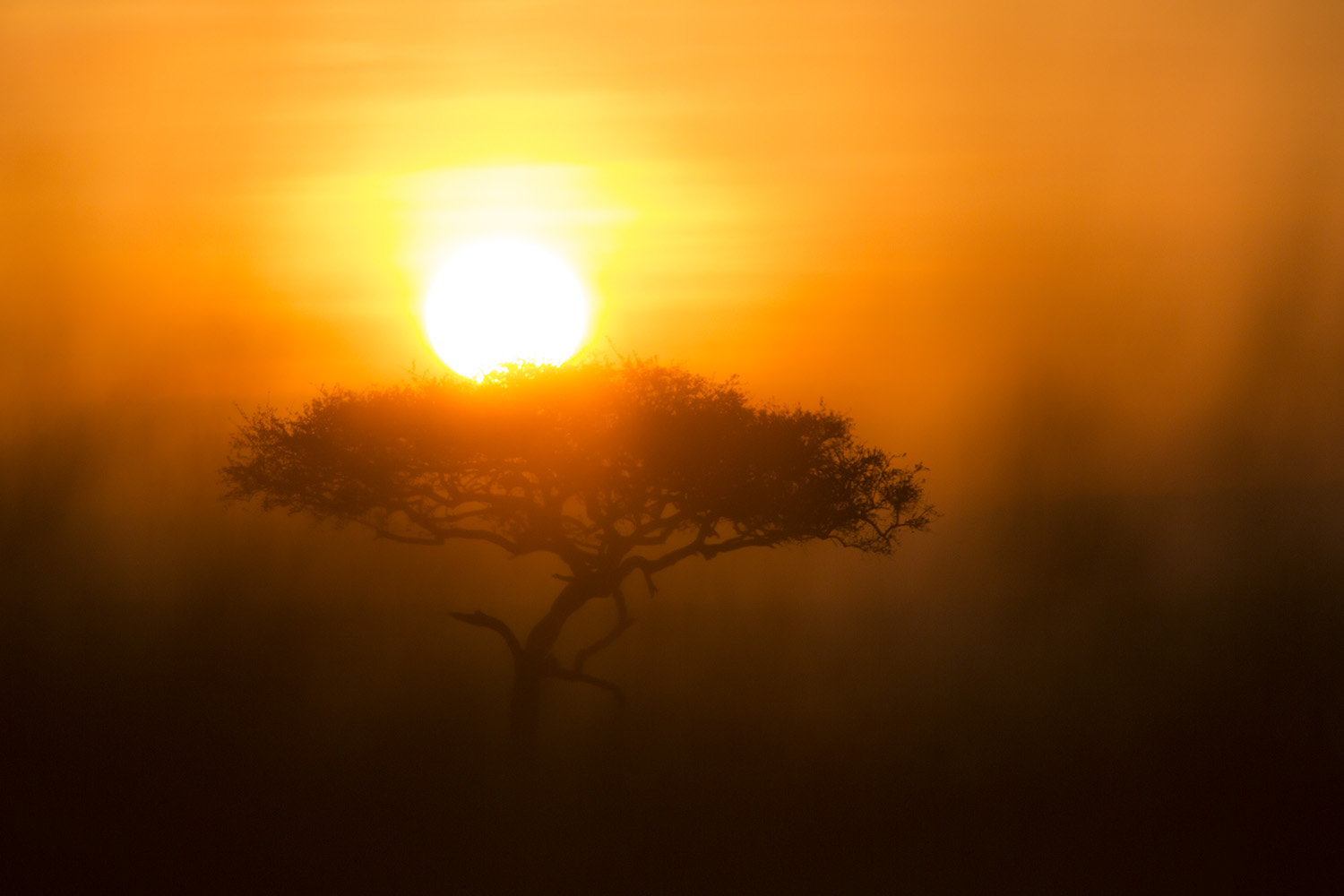
This week I went out with the intention of focusing on bird photography. Not only does birding encourage you to look at the finer details in the bushveld, but it forces you to be patient. And when you are patient you are so often well rewarded. It comes as no surprise that in a week dominated by lovely birding there were always going to be a number of ‘non-birding’ highlights. Lion prides were on fine form this week with no fewer than six different prides being spotted; many of which were in ideal locations and perfect lighting for photography. Enjoy This Week At Angama…
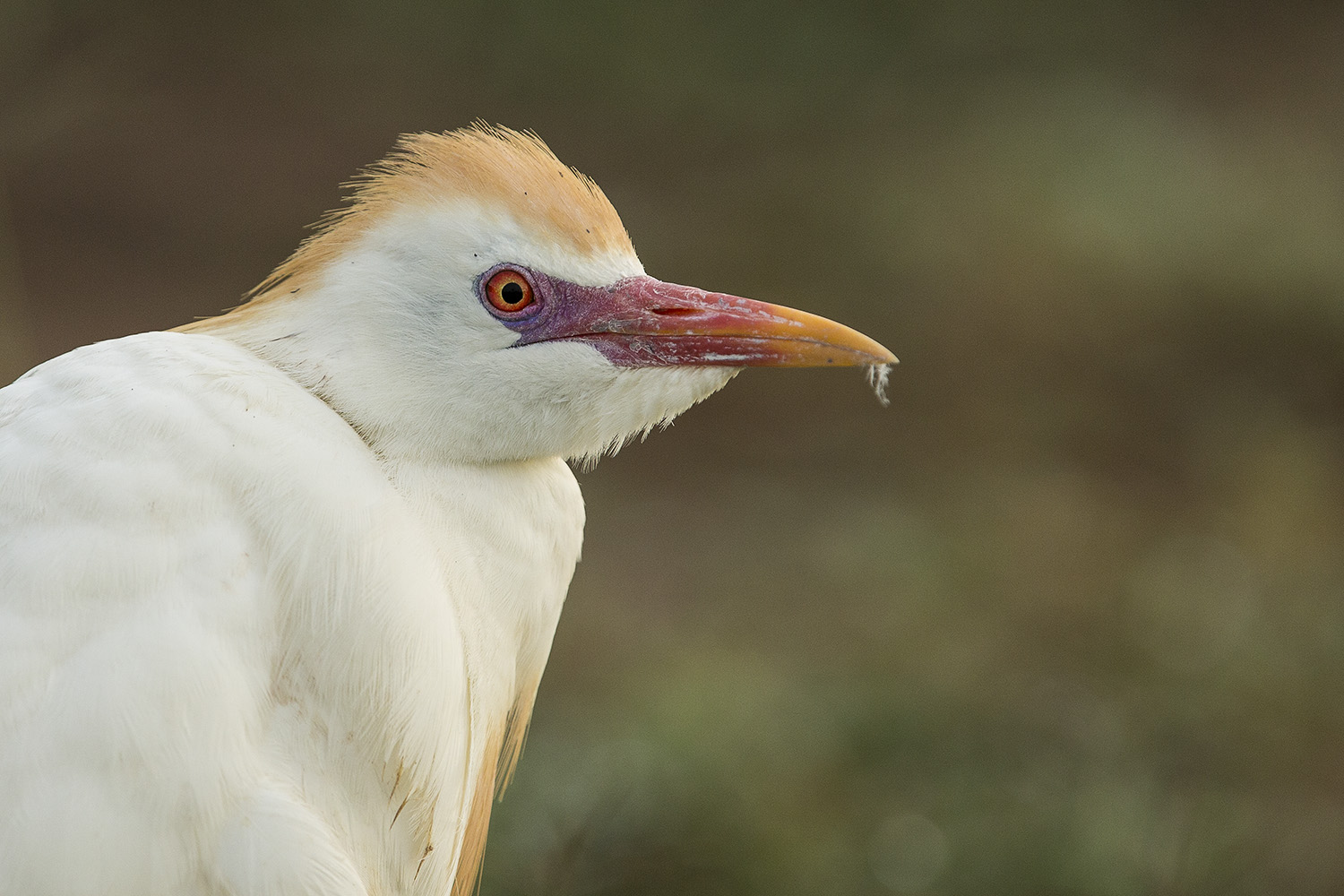
The Cattle Egret has undergone one of the most and wide reaching natural expansions of any bird species on earth. This is largely due to its relationship with humans and their domesticated animals. Initially the egrets would have followed herds of buffalo and elephant, even rhino, but have been able to easily switch to domesticated cattle, goats, horses and sheep. As the keeping of livestock spread throughout the world, so the Cattle Egret was able to keep up and occupy empty niches.
[f 4.5, 1/1000, ISO 640, +0.33]
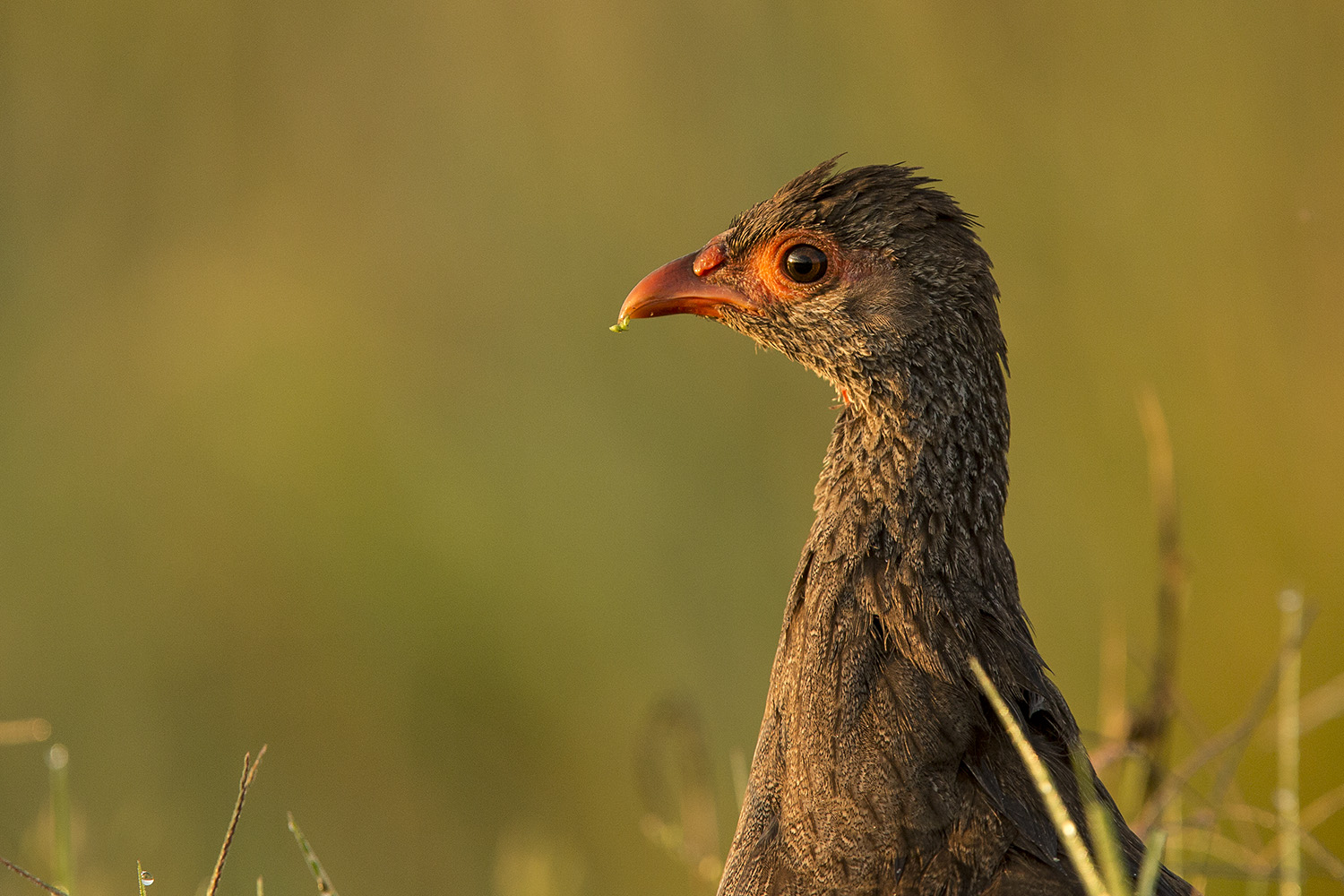
The wet remains of a seed husk can be seen dangling from the end of the beak of a Red-necked Spurfowl. The early morning light makes everything that much richer and cleaner. [f 5.0, 1/320, ISO 640, -0.67]
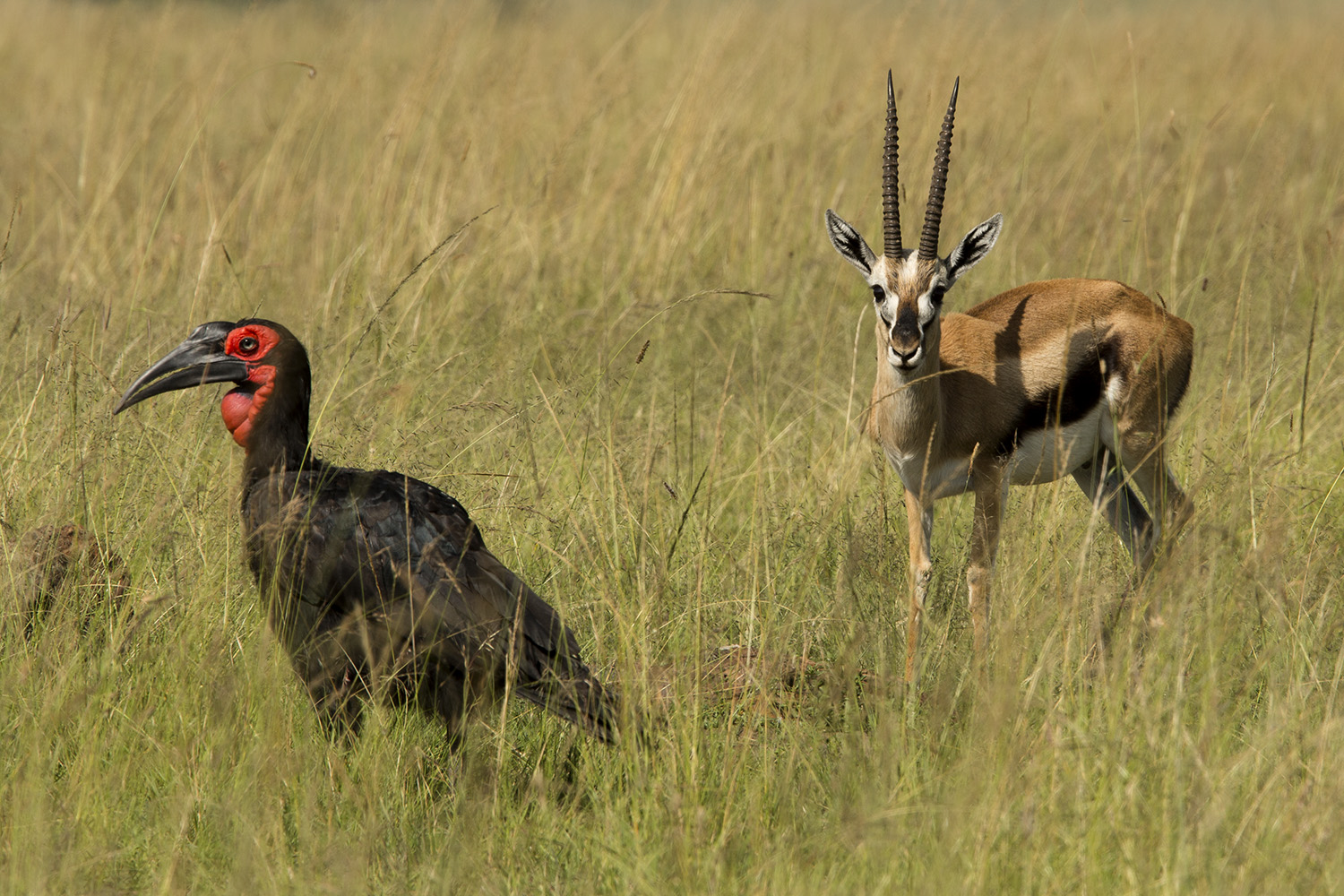
By no means an award-winning photograph, but a lovely scene nonetheless. It is possible that this Ground Hornbill was hanging out with a herd of Thomson’s Gazelles in the hopes that their grazing would flush a delicious insect or rodent her way.
[f 11.0, 1/320, ISO 200, +0.33]
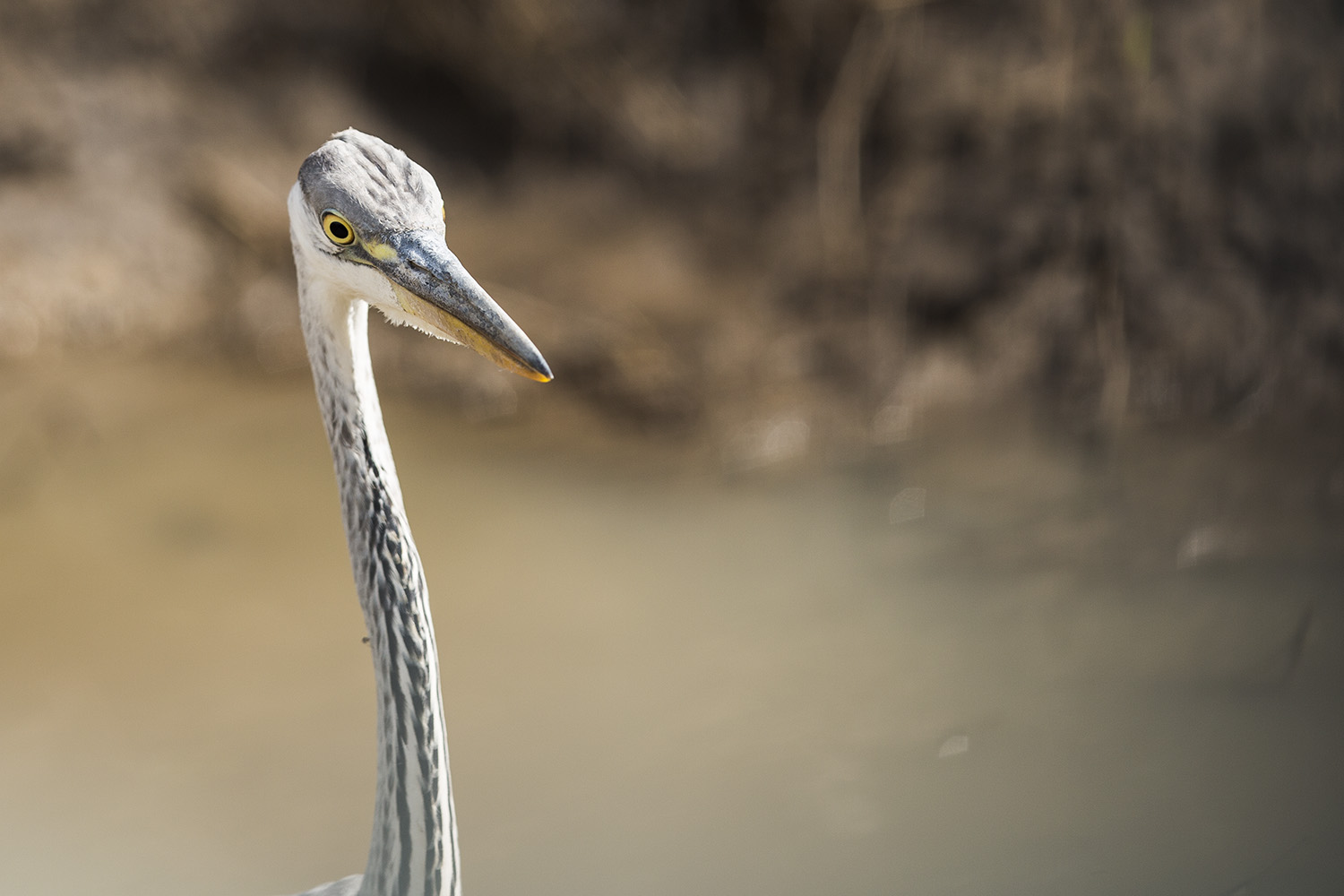
I spent a good half an hour watching this juvenile Grey Heron searching for food in a flooded depression next to the road. This allowed me to get a sharp close up of the bill – a lethal weapon used to catch frogs and fish. [f 4.5, 1/800, ISO 160]
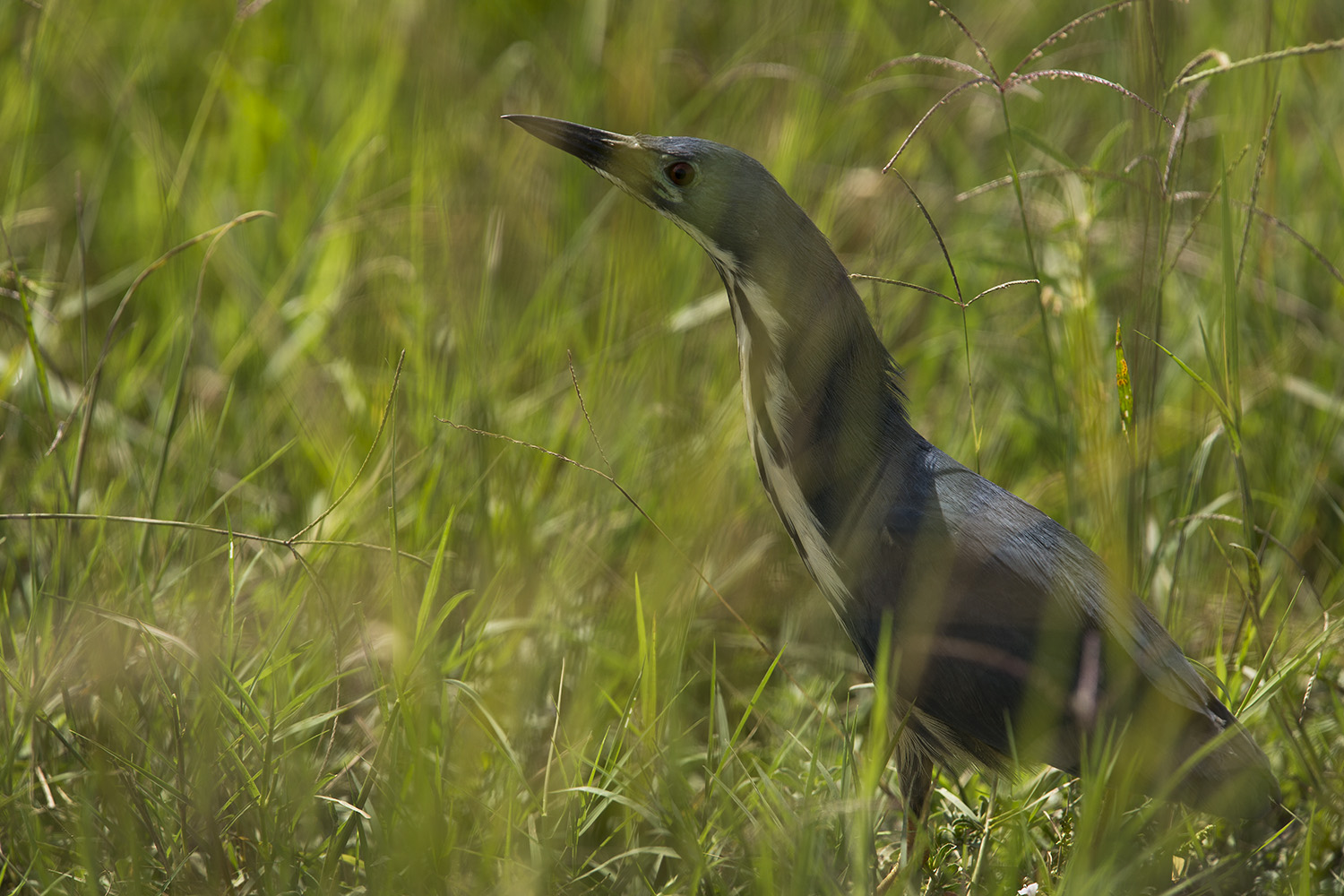
From a bird photography perspective this was the highlight of the week for me. Dwarf Bitterns are not only very uncommon in the Mara, but they skulk away in the long grass and disappear once detected. This is the first one I have ever photographed.
[f 5.6, 1/800, ISO 160, -0.67]
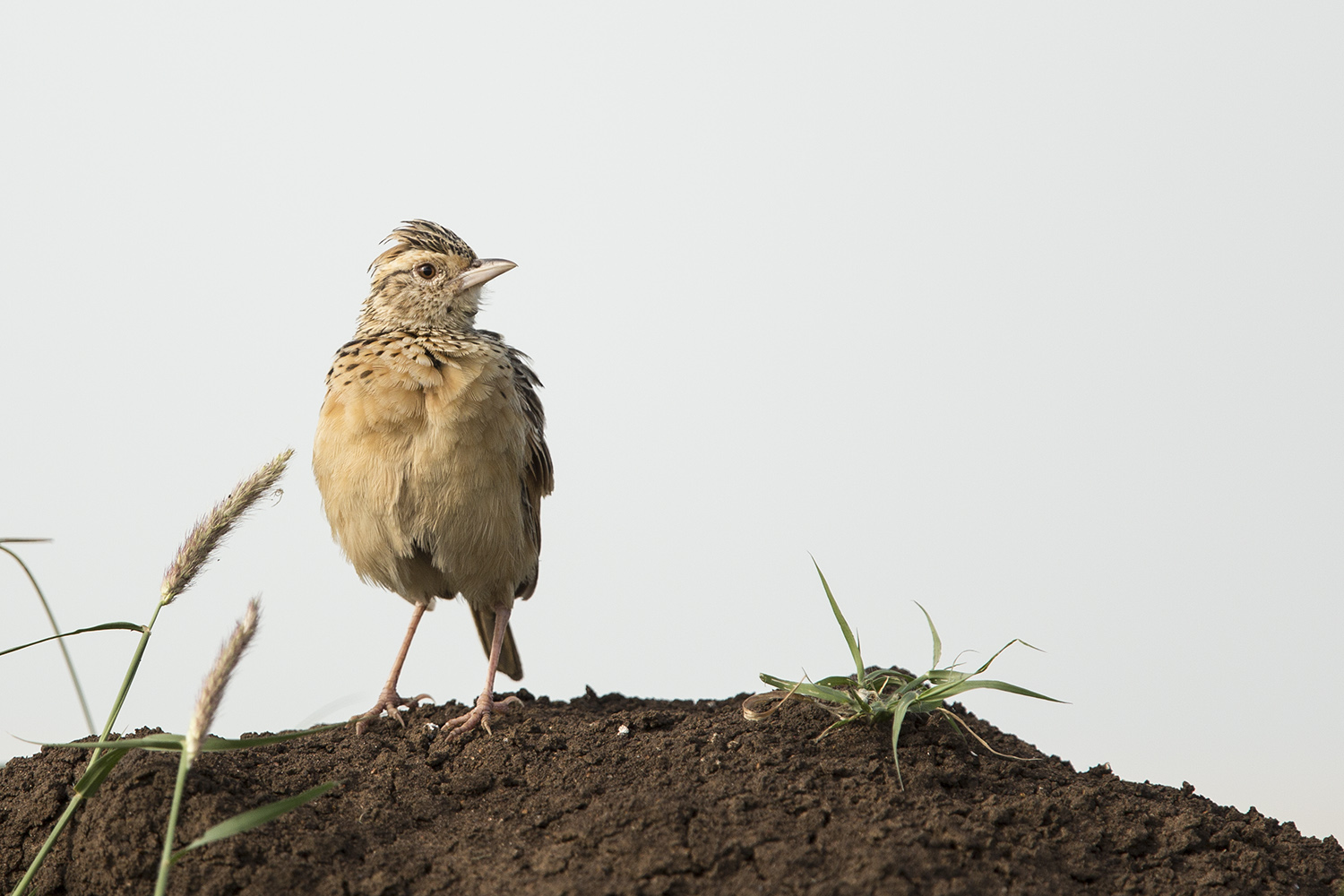
The male Rufous-naped Lark calls throughout the year, and at all times of the day. Even in the mid-day heat, when the grasslands seem quiet, you will always find a boisterous lark calling from a conspicuous perch. I urge you to stop and spend time with an individual, put his drab looks aside and concentrate on his vocal repertoire. It will put a smile on your face.
[f 4.0, 1/2000, ISO 400]
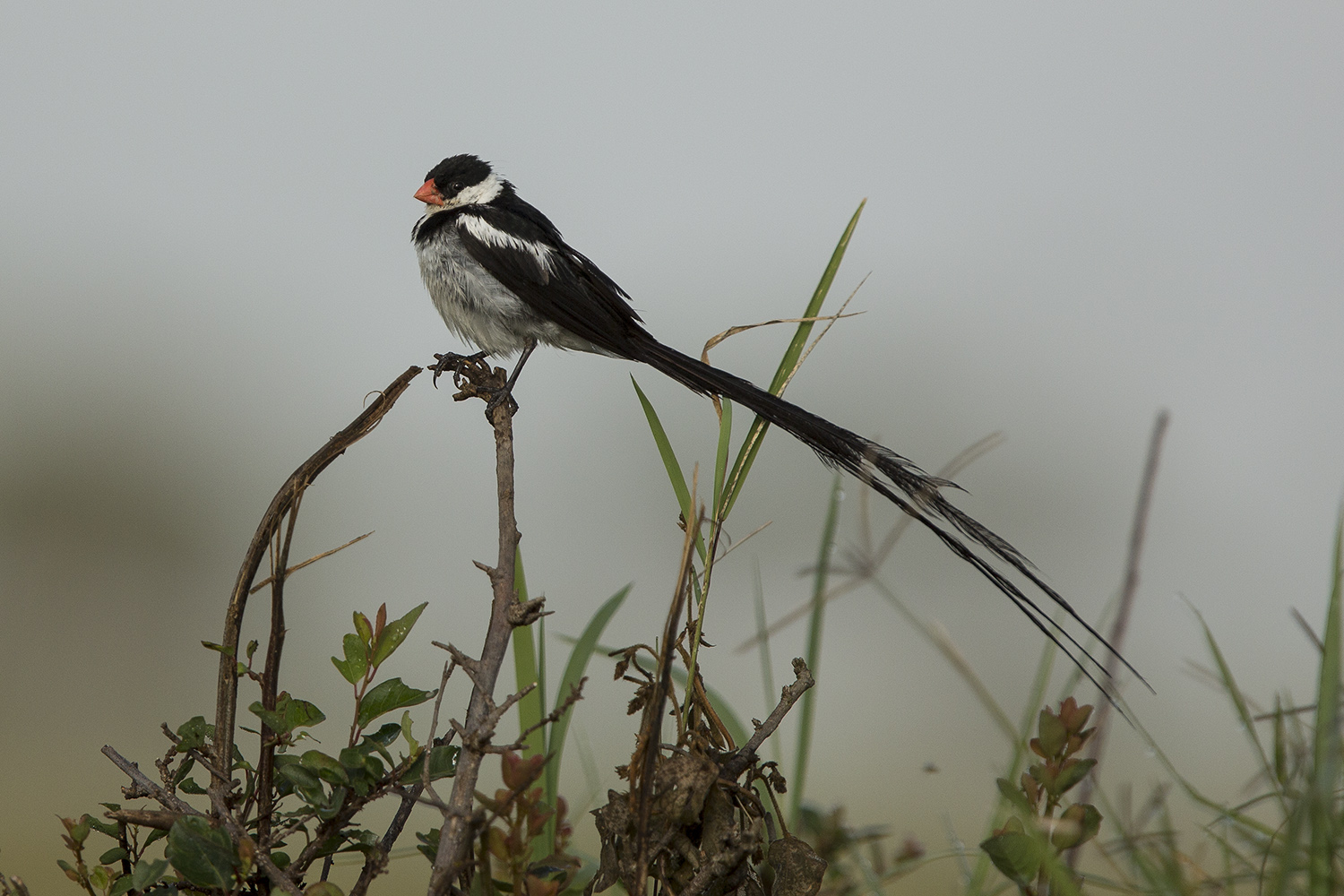
I have a new photographic goal, one which I will have to work on in the coming weeks, and that is to photograph the elaborate courtship display of the male Pin-tailed Whydah. The male of this super territorial species will hover over the female to display his tail. It happens so quickly that by the time you lift the lens he has often finished. At this stage I am content with a stationery male but watch this space for the progress. [f 4.0, 1/3200, ISO 400, +0.33]
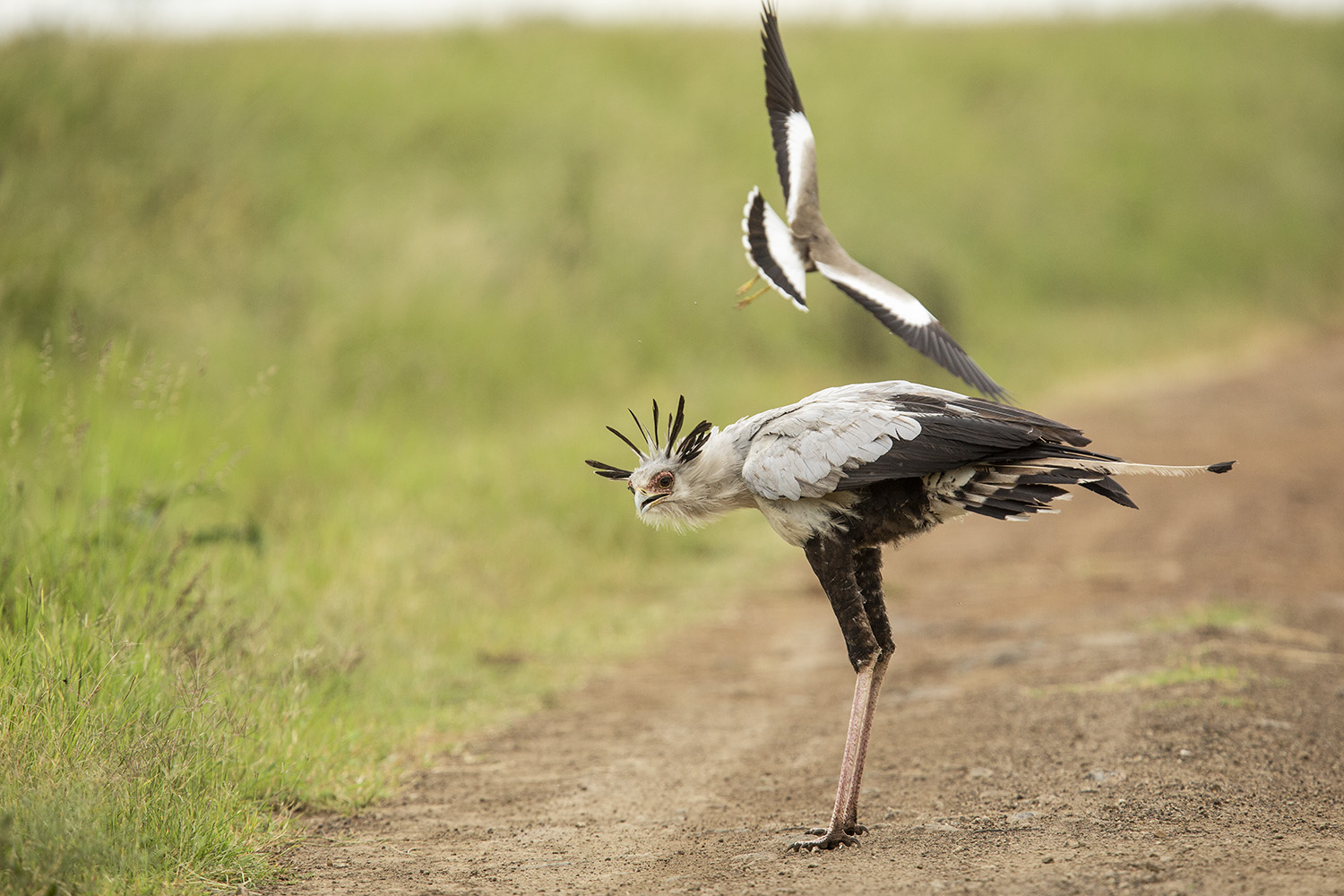
No matter how big the intruder is, Lapwings will do everything in their power to push them out. I have seen these confident birds take on elephants, lions and even cars. This week I added a new encounter to the list: a Secretary bird. [f 4.5, 1/1600, ISO 800]
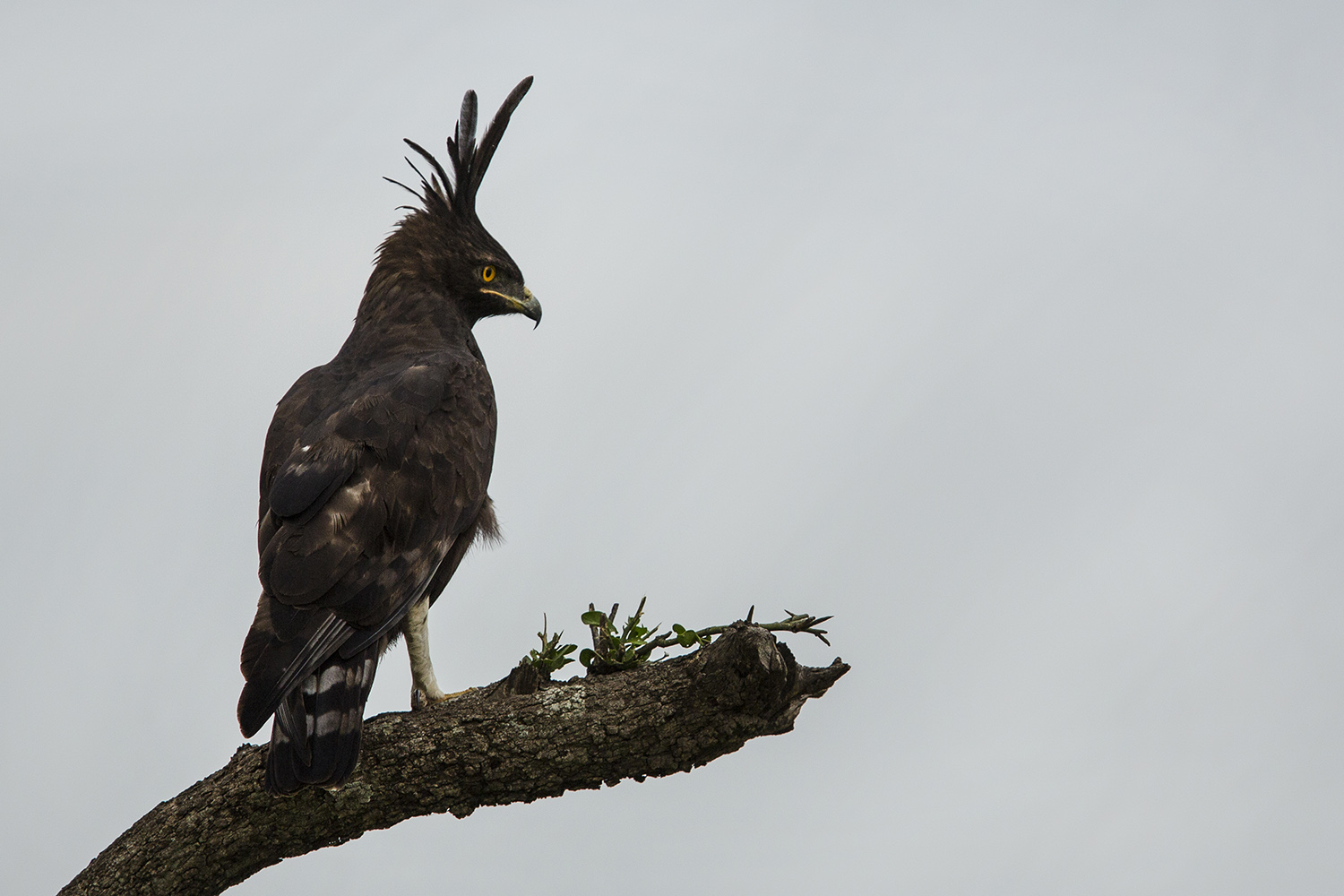
A pair of Long-crested Eagles have set up residence just below the camp. It makes for a daily treat to see these magnificent Eagles perched atop trees scouting for food. It is estimated that 98% of their diet is made up of rodents; the long Mara grass must be heaven for rodent and predator alike. [f 4.5, 1/4000, ISO 500, +1.00]
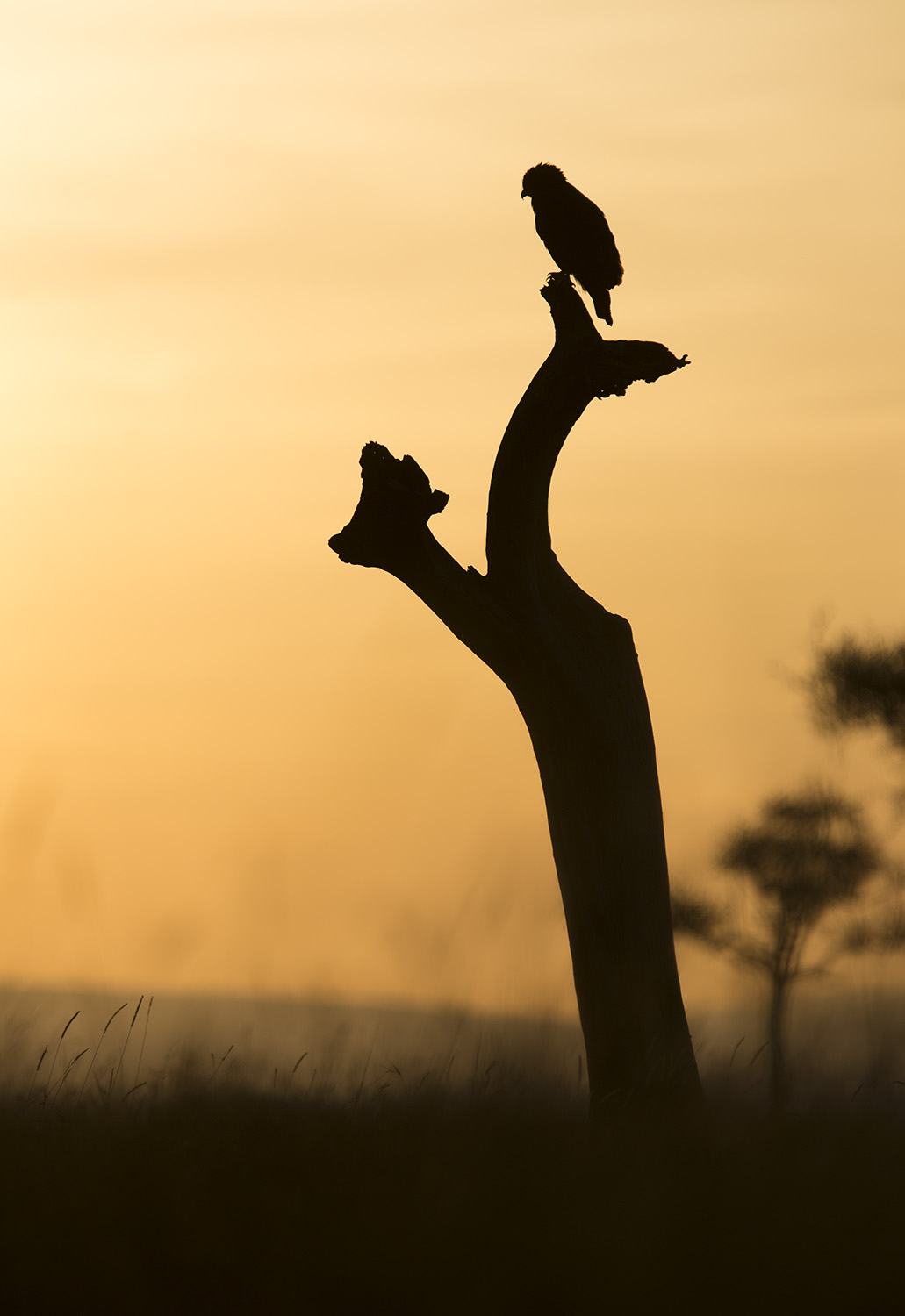
An early morning silhouette of a Black-chested Snake Eagle. [f 4.0, 1/4000, ISO 200, +0.67]
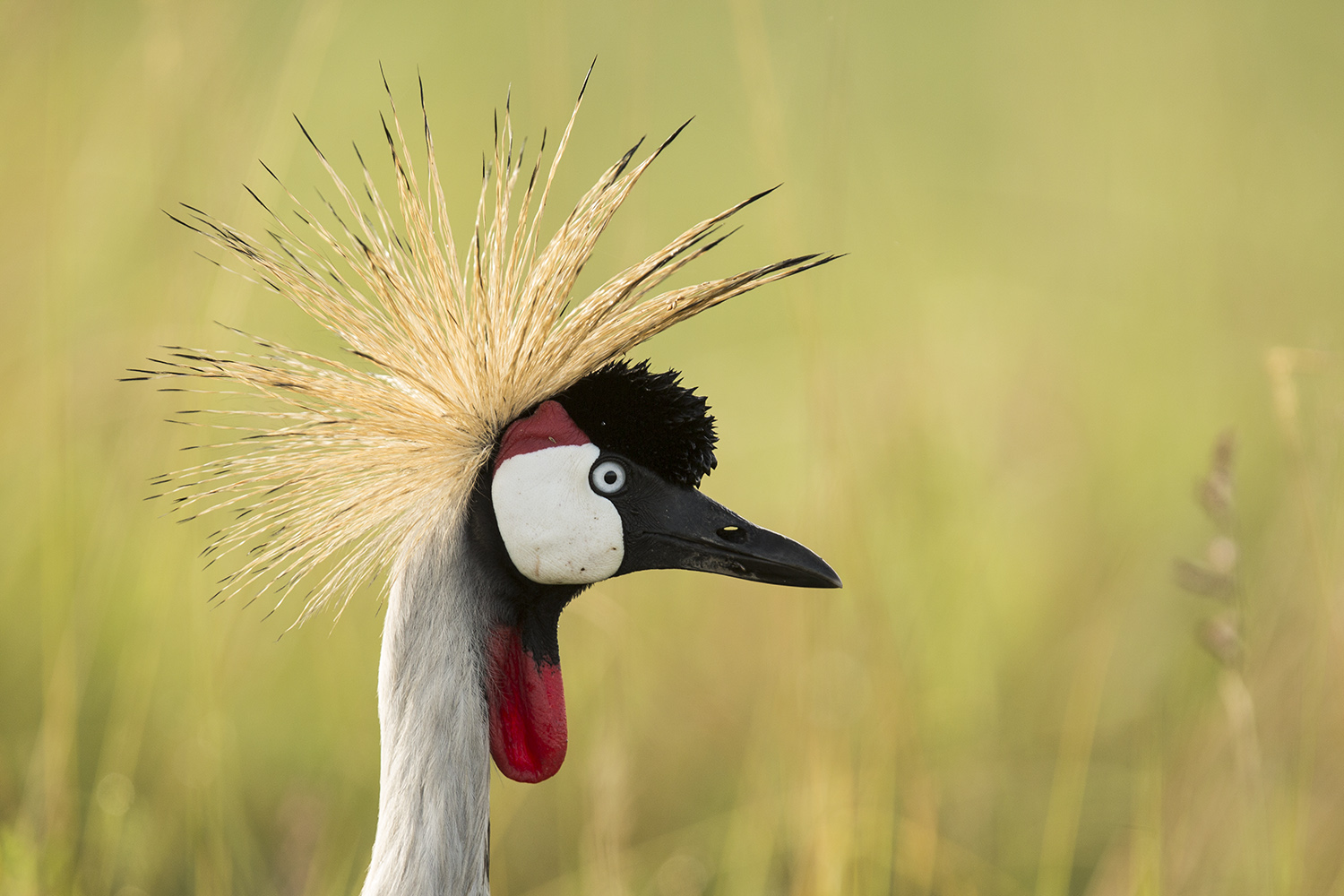
A familiar face for our more regular readers. But who can get enough of these magnificent birds? The details on the face and how about that hairstyle! [f 4.0, 1/640, ISO 400, +0.33]
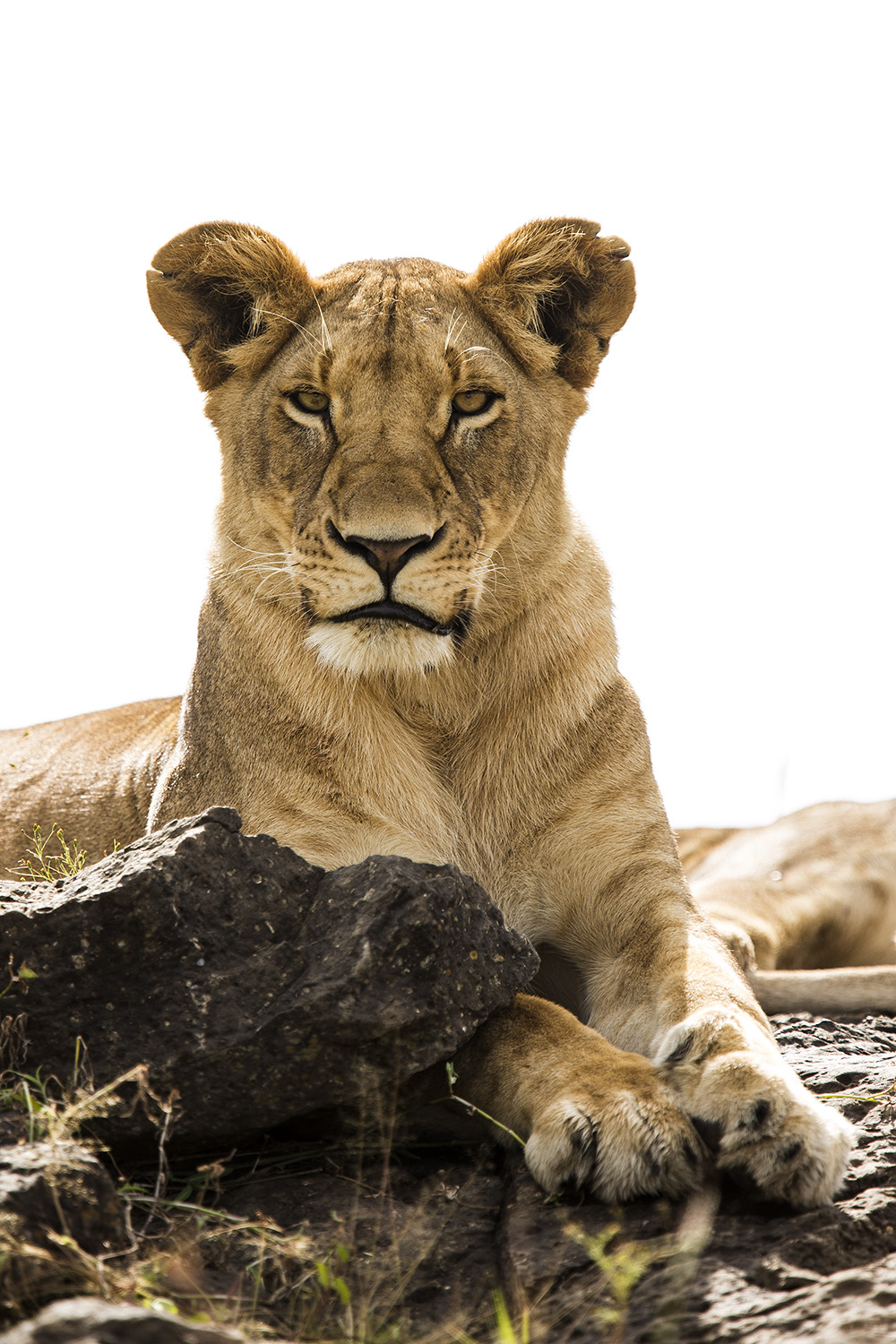
I had planned for this week’s photographic collection to focus solely on birds, however, when I took this photograph I knew it would have to feature somewhere. The lighting, the angle and the composition are wonderful, but what makes it all the more special is that this is one of the daughters of the famous Scarface. And I had the sighting all to myself.
[f 4.0, 1/500, ISO 160, +1.67]
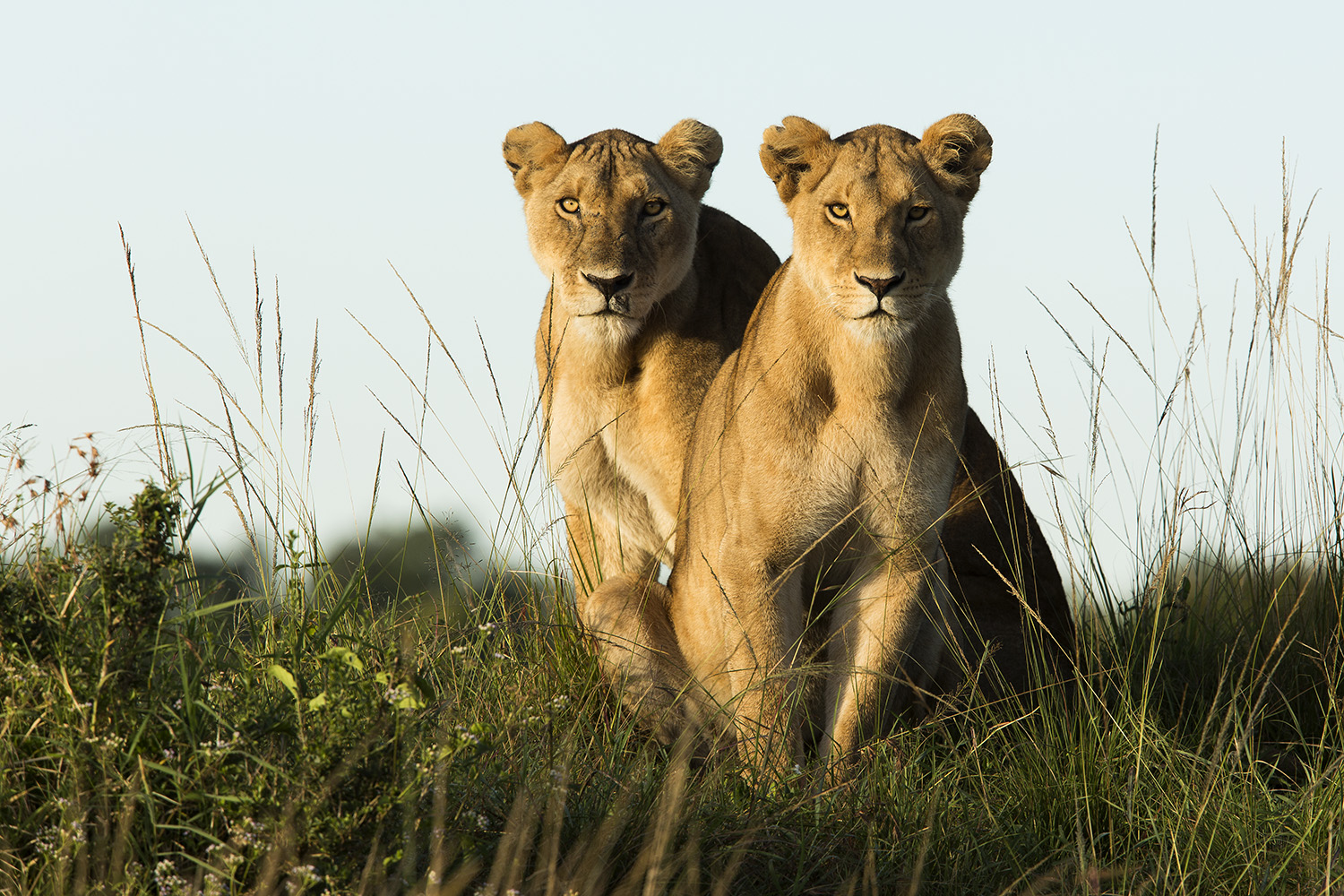
A different day, a different pride of lions, but just as wonderful. Mother and daughter of the Mugoro Pride captured just moments after sunrise. There is nothing better than a focused lion. [f 7.1, 1/400, ISO 400, +1.0]
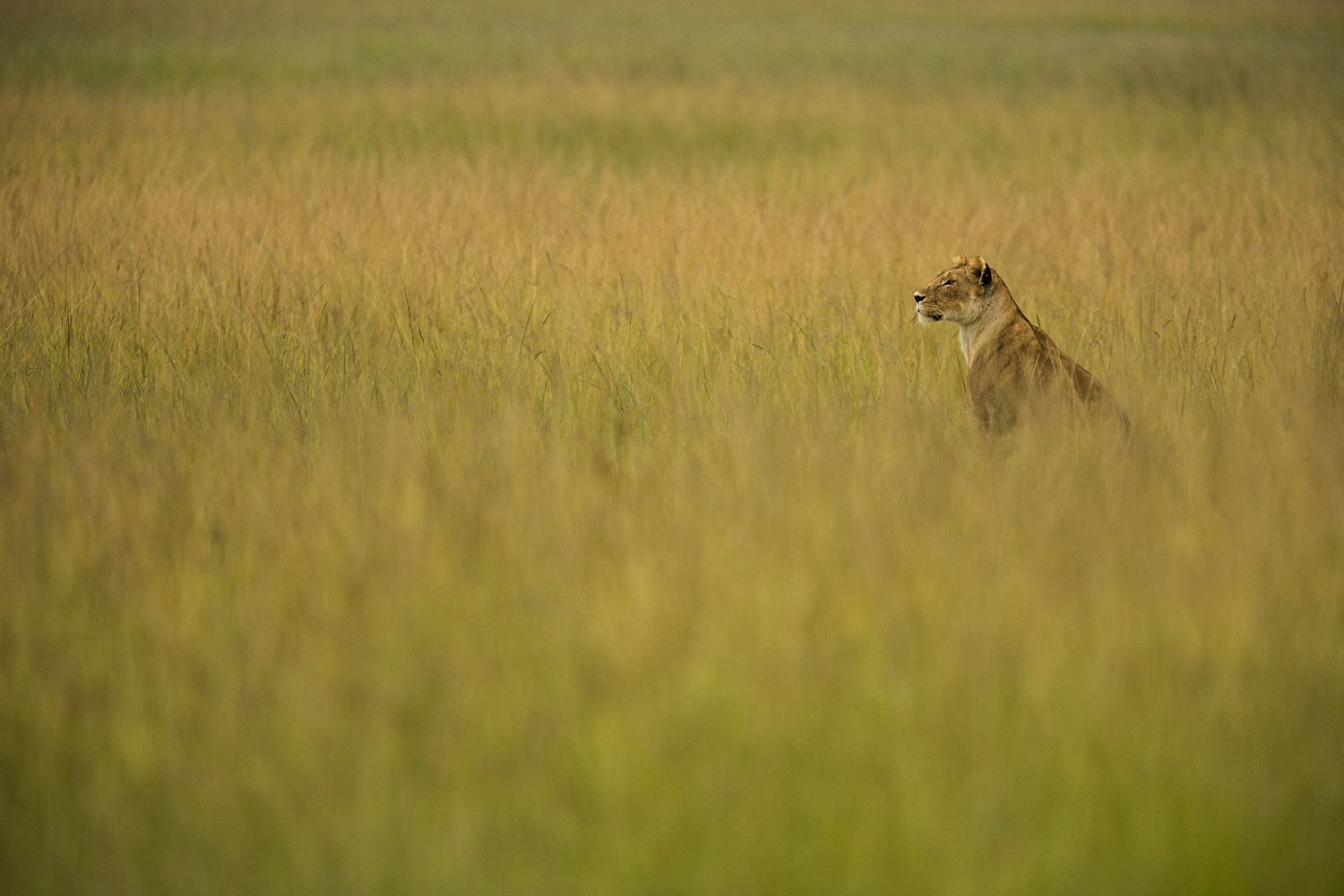
I just love it when a photograph comes together. On this specific occasion an early morning game drive turned sublime when we watched fifteen lions from the Angama pride hunting a herd of Topi. The hunt was unsuccessful but paved the way for multiple shots – this one was my favourite. I love the colours, the simplicity, the composition and the long swathes of flowing grass. Oh Africa. [f 4.0, 1/800, ISO 500, +0.33]
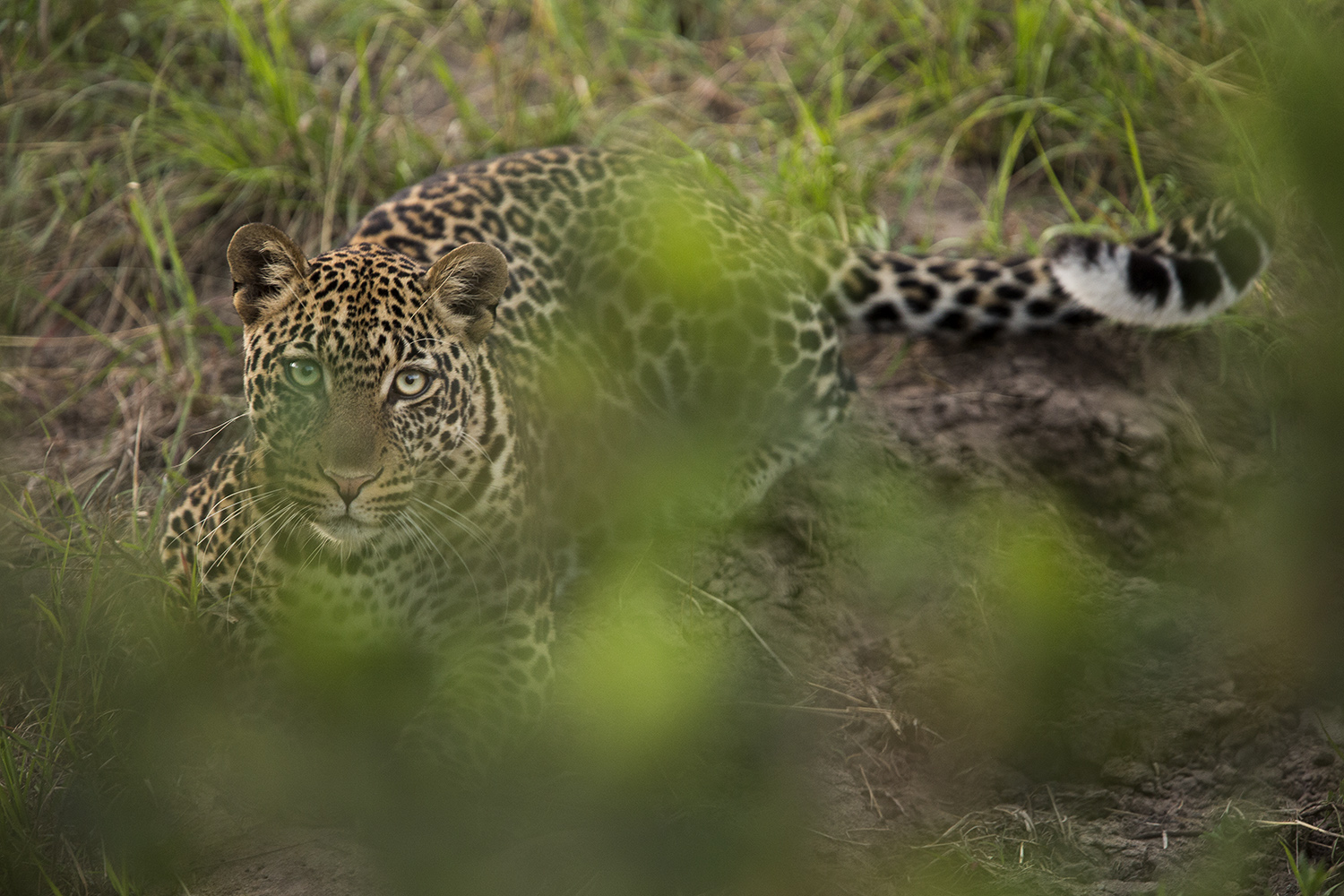
And last but not least – the most wonderful intimate sighting with a young female leopard. [f/4.0, 1/40, ISO 1250, -0.33]
TAGGED WITH: Wildlife, Photography, Birds, Maasai Mara, Birding, Mara Triangle, Wildlife Photography, Lion, Bird Photography


